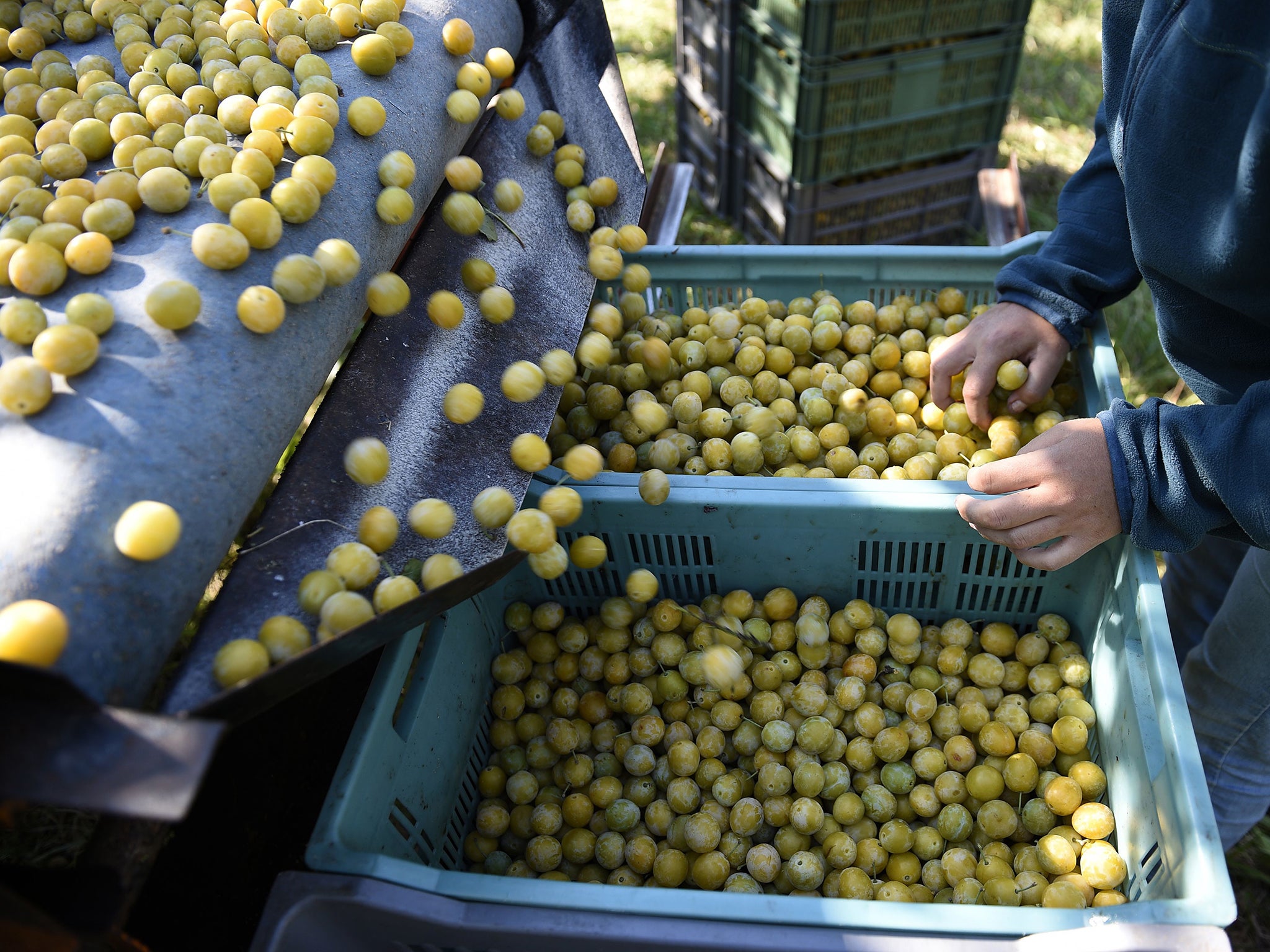Europeans deserve a food policy that focuses on the environment and people’s health
‘Proposed changes to the common agriculture policy do not go far enough’

Your support helps us to tell the story
From reproductive rights to climate change to Big Tech, The Independent is on the ground when the story is developing. Whether it's investigating the financials of Elon Musk's pro-Trump PAC or producing our latest documentary, 'The A Word', which shines a light on the American women fighting for reproductive rights, we know how important it is to parse out the facts from the messaging.
At such a critical moment in US history, we need reporters on the ground. Your donation allows us to keep sending journalists to speak to both sides of the story.
The Independent is trusted by Americans across the entire political spectrum. And unlike many other quality news outlets, we choose not to lock Americans out of our reporting and analysis with paywalls. We believe quality journalism should be available to everyone, paid for by those who can afford it.
Your support makes all the difference.The European Union’s common agricultural policy is a sprawling programme of farming subsidies that covers everything from income support for farmers to supporting the promotion of products such as wine. No wonder the European Commission, the EU’s executive branch, wants to “modernise and simplify” the policy.
This is why the European Commission has just published its legislative proposals for the common agricultural policy (CAP) after 2020. Its aim is to make sure that the CAP continues to support farmers and rural communities, that it leads the sustainable development of agriculture and that it reflects the EU’s ambitions on the environment and climate change. Across the years 2021-2027, the proposed CAP’s total budget will be around €365bn (£319bn).
However, the food system in Europe and the UK faces some critical sustainability challenges. Despite some welcome new objectives – particularly on the environment – and new support payments for young farmers, the proposals clearly do not go far enough on areas such as health.
Europeans deserve an agricultural policy that addresses their health. Too much red and processed meat and food with lots of fat, sugar and salt means more than 20 per cent of the continent is now obese. Poor diets are also responsible for half of the burden of cardiovascular disease, which remains the leading cause of death in the EU.
However, the CAP announcement contains little on health measures. The European Commission recently called for better access to “nutritious valuable products such as fruit and vegetables”, yet the new CAP contains no new policy instruments and no specific targets for fruit and veg.
This is disappointing and, unless addressed in the final legislation, will not go unnoticed. From a public health perspective, this really is ‘low-hanging fruit’ as the need for more fruit and vegetables is uncontroversial: the World Health Organisation’s 400g per day is a widely accepted minimum standard, and Eurostat already provides comparable data on consumption in the EU.
Implying that the current CAP school scheme will do the trick is a severe disappointment. The programme endorses the benefits of healthy eating to children and encourages them to increase their consumption of fruit, vegetables and milk – yet its current budget is just 0.33 per cent of the CAP.
The CAP’s sometimes incoherent position on the use of public money is nicely illustrated by its support for the wine sector. Excessive alcohol consumption is a well-known public health problem, and wine subsidies themselves have often been criticised. Yet the draft proposal for CAP reform accords considerable attention to wine promotion measures. Most perversely, the increased value of wine sales may well be one of the policy’s indicators of success.
A new food policy?
What Europe desperately needs is a new comprehensive food policy – one that actually tackles these huge challenges to human health and society or the environment, across the food system not just at farm level. The European Commission could start by making healthy and sustainable choices easier for regular people. That might involve new guidelines on public procurement, a continent-wide child obesity strategy, or more CAP money set aside for promoting fruit and vegetables.
Europe could also set targets for using less antibiotics and pesticides, and could integrate healthy and sustainable nutrition into school curricula. Rising food insecurity across the UK and Europe also means measures must be targeted at those vulnerable groups who aren’t able to access healthy diets.
Protecting soils in the face of degradation and nutrient loss could deliver major environmental and health benefits – but the EU and member states have failed to act on this basis, and a proposed directive on soil has remained stalled since 2006. Targeting CAP payments for ambitious crop rotations with a minimum share of legumes would be a more positive approach. Perhaps the new environmental scheme could be more ambitious and include such measures.
Incentives should be targeted at those practices across the food system that positively pursue improvements in the soil, water and biodiversity. Let’s also target specific payments for environmental services that favour mixed crop-livestock farms and grassland systems.
Bob Doherty is a professor of marketing and chair of Agrifood at the University of York. This article was originally published on The Conversation
Join our commenting forum
Join thought-provoking conversations, follow other Independent readers and see their replies
Comments